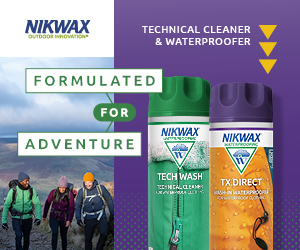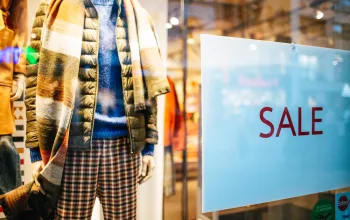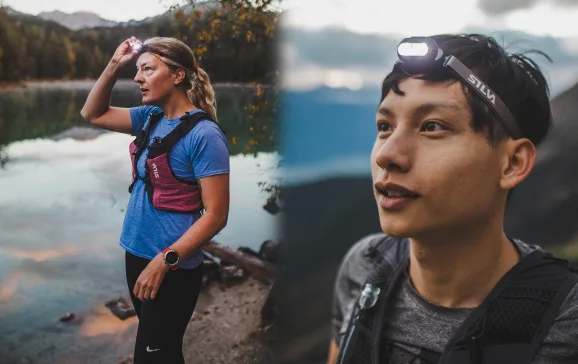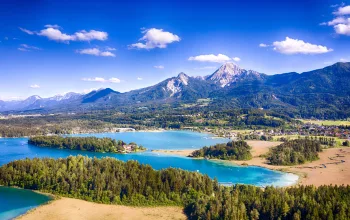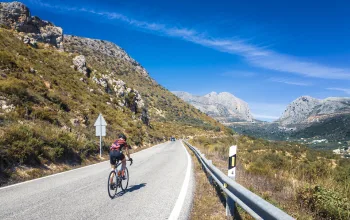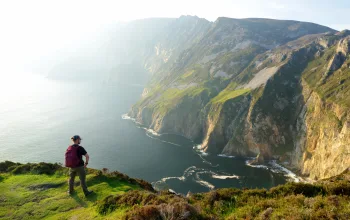As lovers and users of the world's greatest outdoor spaces, we would surely all be mortified if we thought our presence was harming the natural environment.
Yet, ironically, by kitting ourselves out to go hiking, climbing, skiing or biking, many of us are doing just that, through our choice of outdoor apparel.
The culprit: polyfluorinated chemicals, otherwise known as PFCs - volatile pollutants that can evaporate from outdoor products into the air, and into the world's eco-systems. Rain washes the PFCs off. Even washing washes them off! PFCs have been found in secluded lakes and snowfields, and can accumulate in living organisms, such as the livers of polar bears in the Arctic and even human blood.
Studies show that exposure to volatile PFCs can be linked to increased levels of PFCs in the bloodstream. For example, the PFC substance known as 8:2FTOH can transform into a toxic carcinogen (PFOA) and remain in the body for years. Exposure to some PFCs has also been associated with adverse health effects in humans, including kidney and testicular cancers.
PFCs are used in many industrial processes and consumer products, and are well known for their use by the outdoor apparel industry in waterproof and water-repellent finishes.
It may be hard to take that our clothes might be harming the fragile environments that we have been so keen to escape to from our urban lives - especially as outdoor brands have always seemed a perfect match with the ideals of protecting the planet.
Yet in 2016, Greenpeace produced a seminal report on the 'hidden' hazardous chemicals in outdoor gear. They tested 40 products including 11 jackets for PFCs and only two jackets from the test were PFC-free.
Even those selling outdoor gear were not safe. Greenpeace conducted air tests in stores in Taiwan and five European countries - Germany, Italy, Norway, Sweden and Switzerland - and found high PFC concentrations in many locations.
Calling out many leading big-name brands for hiding behind their names and making empty promises while contributing to irreversible toxic pollution, Greenpeace have urged all manufacturers to sign a Detox commitment and switch to toxic-free production.
Many companies currently include some PFC-free products in their outdoor range. Some have made a commitment to go PFC-free by 2020.
Only a handful of smaller brands - including UK brand Paramo - are currently completely PFC-free; now one of the mid-sized players, the German brand VAUDE, has stepped up to the challenge and committed to being totally PFC-free in its clothing by 2018, a move welcomed by Greenpeace.
'VAUDE has taken the PFC issue seriously from the beginning and has now set a very ambitious timeline to eliminate these hazardous chemicals by 2018 from its entire supply chain. Thank you VAUDE for responding to your customers' demands, for choosing to commit to Detox and taking this bold step towards a toxic-free future,' said Mirjam Kopp, Detox Outdoor project leader from Greenpeace.
Antje von Dewitz, Vaude CEO, admitted the commitment has been a challenge. 'We want to be able to stand behind even the smallest button on our products. But as an independent mid-sized company, the influence we have over our suppliers and the chemical industry has been too low. We therefore welcomed the Detox Greenpeace campaign from the outset. After intensive discussions and negotiations with Greenpeace, we have found common ground - which we are very pleased about! After all, we can only make progress by working together,' she said.
VAUDE has already made considerable progress: 95% of all clothing in the VAUDE Summer Collection 2017 is PFC-free. Through intensive research and development, VAUDE has now succeeded in even finding a PFC-free DWR (durable water resistant) alternative with a high level of functionality for waterproof textile finishes.
VAUDE has also developed its own in-house Green Shape Label, to help guide consumers. All functional products bearing the label have been manufactured as environmentally friendly as possible. VAUDE, as a member of the Fair Wear Foundation, ensures that all garment producers are regularly monitored by the independent organisation ensuring that production is carried out under fair conditions.
In its Spring/Summer 2018 collection, VAUDE has succeeded in completely eliminating PFCs from all its apparel. This means: 100% PFC-free membrane and water-repellent treatment. In addition, the new collection includes numerous alternative materials such as recycled polyester made from PET bottles, the wood fiber Tencel® or drirelease® wool. The bluesign® system is another important criterion for a Green Shape product. Similar to a purity law, it focuses on issues such as strict chemical management and energy efficiency.
'The goal is to create a balance between ecological, social and economic responsibility. 'The expense that this involves is enormous. But we are convinced that it makes sense and is worthwhile in the long term,' said von Dewitz. In November 2015 VAUDE received the highest honours at the prestigious German Sustainability Award and was named Germany's Most Sustainable Brand.
'Sustainability is at the core of what VAUDE does,' said its UK country manager Chris Davison. 'I've been with the company for 28 years and can't remember a time when it wasn't.
'But recently the harm that manufacturing has been doing has been more obvious, thanks to the campaigning by the likes of Greenpeace.'
'In some ways, PFCs are "best" for the garments, but the cost to the environment is too great. We have had to reinvent the wheel, so to speak, and the achievement of having a range of PFC-free clothing is considerable. VAUDE has worked with various fabric suppliers to produce a new eco-finish. This varies - some are wax-based, but most are chemicals that do not use toxic PFCs. There are lots of little initiatives within the VAUDE collection.
'In terms of overall sustainability, we are unique. No other brand is as far down the road as we are.'




